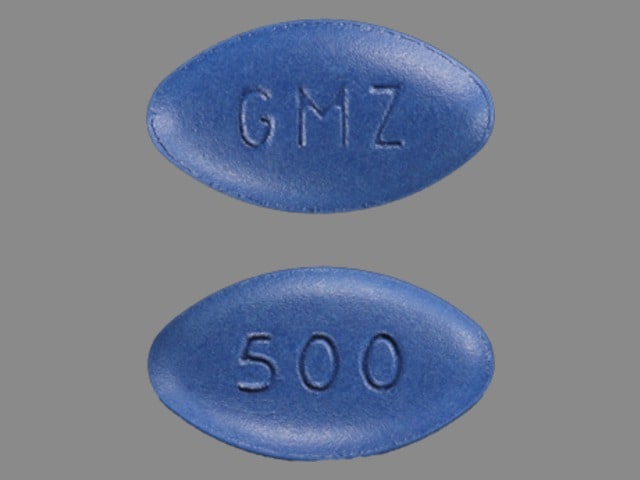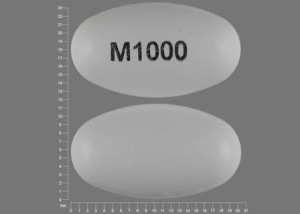What is Glumetza?
- Glumetza is a prescription medicine that contains metformin hydrochloride. Glumetza is used with diet and exercise to help control high blood sugar (hyperglycemia) in adults with type 2 diabetes.
It is not known if Glumetza is safe and effective in children.
What is the most important information I should know about Glumetza?
Glumetza can cause serious side effects, including:
Lactic acidosis. Metformin hydrochloride, the medicine in Glumetza, can cause a rare, but serious side effect called lactic acidosis (a buildup of lactic acid in the blood) that can cause death. Lactic acidosis is a medical emergency and must be treated in the hospital.
Stop taking Glumetza and call your doctor right away if you get any of the following symptoms of lactic acidosis:
- feel very weak and tired
- have unusual sleepiness or sleep longer than usual
- have unusual (not normal) muscle pain
- feel cold, especially in your arms and legs
- have trouble breathing
- feel dizzy or lightheaded
- have unexplained stomach or intestinal problems with nausea and vomiting, or diarrhea
- have a slow or irregular heartbeat
You have a higher chance of getting lactic acidosis if you:
- have severe kidney problems. See “Who should not take Glumetza?”
- have liver problems.
- drink a lot of alcohol (very often or short-term “binge” drinking).
- get dehydrated (lose a large amount of body fluids). This can happen if you are sick with a fever, vomiting, or diarrhea. Dehydration can also happen when you sweat a lot with activity or exercise and do not drink enough fluids.
- have certain x-ray tests with injectable dyes or contrast agents.
- have surgery or other procedure for which you need to restrict the amount of food and liquid you eat and drink.
- have congestive heart failure.
- have a heart attack, severe infection, or stroke.
- are 65 years of age or older.
Tell your doctor if you have any of the problems in the list above.
Tell your doctor that you are taking Glumetza before you have surgery or x-ray tests. Your doctor may need to stop
Glumetza for a while if you have surgery or certain x-ray tests.
Glumetza can have other serious side effects. See “What are the possible side effects of Glumetza?”.
Who should not take Glumetza?
Do not take Glumetza if you:
- have severe kidney problems.
- are allergic to metformin hydrochloride or any of the ingredients in Glumetza. See the end of this Patient Information leaflet for a complete list of ingredients in Glumetza.
- have a condition called metabolic acidosis, including diabetic ketoacidosis (high levels of certain acids called “ketones” in your blood or urine).
What should I tell my healthcare provider before taking Glumetza?
Before taking Glumetza tell your doctor about all of your medical conditions, including if you:
- have a history or risk for diabetic ketoacidosis. See “Who should not take Glumetza?”
- have kidney problems.
- have liver problems.
- have heart problems, including congestive heart failure.
- are 65 years of age or older.
- drink alcohol very often, or drink a lot of alcohol in short-term “binge” drinking.
- are taking insulin or a sulfonylurea medicine.
- are pregnant or plan to become pregnant. It is not known if Glumetza can harm your unborn baby. If you are pregnant, talk with your doctor about the best way to control your blood sugar while you are pregnant.
- are a woman who has not gone through menopause (premenopausal) who does not have periods regularly or at all.
- Glumetza can cause the release of an egg from an ovary in a woman (ovulation). This can increase your chance of getting pregnant.
- are breastfeeding or plan to breastfeed. Glumetza can pass into your breast milk. Talk with your doctor about the best way to feed your baby while you take Glumetza.
Tell your doctor about all the medicines you take, including prescription and over-the-counter medicines, vitamins and herbal supplements. Know the medicines you take. Keep a list of them to show your doctor and pharmacist. Talk to your doctor before you start any new medicine.
Glumetza may affect the way other medicines work, and other medicines may affect how Glumetza works.
How should I take Glumetza?
- Take Glumetza exactly as your doctor tells you.
- Glumetza should be taken 1 time each day with your evening meal to help decrease an upset stomach.
- Swallow Glumetza tablets whole. Do not crush, cut, or chew the tablets.
- You may sometimes pass a soft mass in your stools (bowel movement) that looks like Glumetza tablets. This is normal and will not affect the way Glumetza works.
- When your body is under some type of stress, such as fever, trauma (such as a car accident), infection, or surgery, the amount of diabetes medicine that you need may change. Tell your doctor right away if you have any of these problems.
- Your doctor should do blood tests to check how well your kidneys are working before and during your treatment with Glumetza.
- Your doctor will check your diabetes with regular blood tests, including your blood sugar levels and your hemoglobin A1C.
- Low blood sugar (hypoglycemia) can happen more often when Glumetza is taken with certain other diabetes medicines. Talk to your doctor about how to prevent, recognize, and manage low blood sugar. See “What are the possible side effects of Glumetza?”.
- Check your blood sugar as your doctor tells you to.
- Stay on your prescribed diet and exercise program while taking Glumetza.
- If you miss a dose of Glumetza, take your next dose at the normal schedule. Do not take 2 doses of Glumetza on the same day.
- If you take too much Glumetza, call your doctor or go to the nearest hospital emergency room right away.
What should I avoid while taking Glumetza?
Do not drink a lot of alcoholic drinks while taking Glumetza. This means you should not binge drink for short periods, and you should not drink a lot of alcohol on a regular basis. Alcohol can increase the chance of getting lactic acidosis.
What are the possible side effects of Glumetza?
Glumetza can cause serious side effects, including:
- See “What is the most important information I should know about Glumetza?”.
- Low vitamin B12 (vitamin B12 deficiency). Using Glumetza may cause a decrease in the amount of vitamin B12 in your blood, especially if you have had low vitamin B12 levels before. Your doctor may do blood tests to check your vitamin B12 levels.
- Low blood sugar (hypoglycemia). Low blood sugar is a serious, but common, side effect of Glumetza. If you take Glumetza with another medicine that can cause low blood sugar, such as sulfonylureas or insulin, you have a higher risk of getting low blood sugar. The dose of your sulfonylurea medicine or insulin may need to be lowered while you take Glumetza. Signs and symptoms of low blood sugar may include:
- headache
- hunger
- dizziness
- drowsiness
- fast heartbeat
- sweating
- weakness
- confusion
- irritability
- shaking or feeling jittery
The most common side effects of Glumetza include:
- diarrhea
- nausea
These are not all of the possible side effects of Glumetza.
Call your doctor for medical advice about side effects. You may report side effects to FDA at 1-800-FDA-1088.
Glumetza Images
General information about the safe and effective use of Glumetza
Medicines are sometimes prescribed for purposes other than those listed in a Patient Information leaflet. Do not use Glumetza for a condition for which it was not prescribed. Do not give Glumetza to other people, even if they have the same symptoms you have. It may harm them.
You can ask your pharmacist or doctor for information about Glumetza that is written for health professionals.
How should I store Glumetza?
- Store Glumetza at room temperature between 68°F to 77°F (20°C to 25°C).
Keep Glumetza and all medicines out of the reach of children.
What are the ingredients in Glumetza?
Active Ingredient: metformin hydrochloride
Inactive Ingredient: 500 mg tablet: coloring, hypromellose, magnesium stearate, microcrystalline cellulose and polyethylene oxide.
1,000 mg tablet: colloidal silicon dioxide, polyvinyl alcohol, crospovidone, glyceryl behenate, polyacrylate dispersion, hypromellose, talc, polyethylene glycol, eudragit, titanium dioxide, simethicone emulsion, polysorbate and coloring.
For more information, go to WWW.GLUMETZAXR.COM or call 1-800-321-4576.







